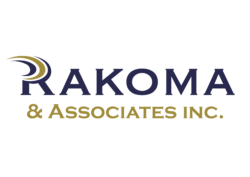Running an auditing firm can be a challenging yet rewarding endeavor. Auditing is a crucial function that helps businesses ensure accuracy and compliance in their financial records. In this article, we will delve into the ins and outs of running an auditing firm and explore the key aspects that need to be considered for success.
1. Expertise and Credentials
One of the most critical factors in running an auditing firm is having the right expertise and credentials. Auditors need to possess a deep understanding of accounting principles, financial regulations, and auditing standards. Obtaining relevant certifications such as Chartered Accountant (CA), Registered Auditor (RA), Certified Fraud Examiner (CFE), Certified Information Systems Auditor (CISA), or Certified Internal Auditor (CIA) can enhance credibility and attract clients.
2. Building a Strong Team
Behind every successful auditing firm is a strong team of professionals. Hiring skilled auditors with diverse backgrounds and experiences can bring different perspectives to the table and contribute to the firm’s overall effectiveness. It is essential to invest in continuous training and professional development to keep the team up-to-date with the latest industry trends and regulations.
3. Developing Effective Audit Processes
Establishing efficient and effective audit processes is crucial for the smooth functioning of an auditing firm. This includes defining clear objectives, designing comprehensive audit programs, and implementing robust quality control measures. Adhering to internationally recognized auditing standards, such as those issued by the International Auditing and Assurance Standards Board (IAASB), can further enhance the firm’s reputation.
4. Nurturing Client Relationships
Building strong and long-lasting relationships with clients is essential for the success of any auditing firm. Providing excellent customer service, being responsive to client needs, and delivering high-quality audit reports can help foster trust and loyalty. Regular communication and proactive engagement with clients can also uncover new opportunities for the firm.
5. Embracing Technology
Technology plays a significant role in modern auditing practices. Auditing firms need to leverage software tools and data analytics to improve audit efficiency and effectiveness. Investing in advanced audit software, such as IDEA or ACL, can streamline data analysis and facilitate the identification of potential risks and anomalies.
Conclusion
Running an auditing firm requires a combination of technical expertise, effective team management, well-defined processes, and strong client relationships. By focusing on these key aspects, auditing firms can navigate the challenges and achieve success in this vital profession. Remember, the trust and confidence clients place in your firm are built on the quality and integrity of your audit services.



